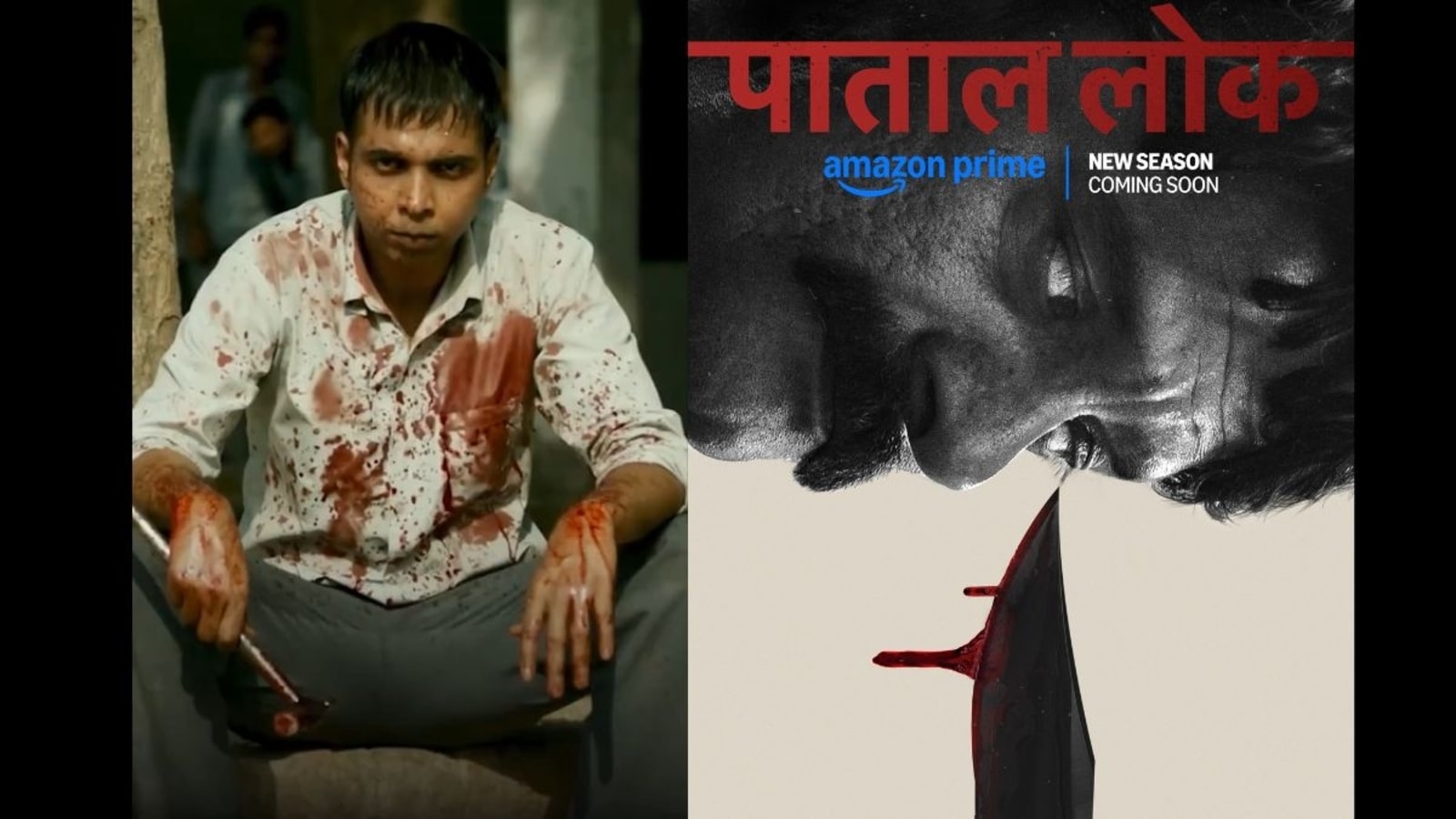
The Supreme Court agreed Wednesday to hear TikTok 's challenge to a law that could ban its U.S. operations, putting the case on an exceptionally fast track that will culminate in oral arguments next month.
In setting aside two hours for the argument on Jan. 10, the justices signaled that they viewed the questions in the case as exceptionally critical, pitting the Constitution's protection of free expression against the government's assertions of threats to national security. The court's move came only two days after TikTok and ByteDance , its Chinese parent company, filed an emergency application asking the justices to temporarily block the law.

In another break with its usual practices, the court did not ask the government to respond to the application, instead treating it as a petition seeking review and granting it. The law, which passed with wide bipartisan support, calls for ByteDance to sell it to a non-Chinese company or otherwise face a ban in the United States. TikTok has said the law violates the First Amendment.
But the Biden administration and lawmakers have countered that given its Chinese ownership, TikTok raised national security concerns because of the breadth of user data available and the risk that the Chinese government could use the app to spread covert disinformation. The court did not block the law while the case moves forward, which suggested that it may issue a ruling before the Jan. 19 deadline set by the law.
That would mean the case would be resolved before President-elect Donald Trump is inaugurated on January 20. Artificial Intelligence(AI) Learn InVideo AI: Create Videos from Text Easily By - Prince Patni, Software Developer (BI, Data Science) View Program Web Development Advanced C++ Mastery: OOPs and Template Techniques By - Metla Sudha Sekhar, IT Specialist and Developer View Program Data Analysis Learn Power BI with Microsoft Fabric: Complete Course By - Prince Patni, Software Developer (BI, Data Science) View Program Web Development JavaScript Essentials: Unlock AI-Driven Insights with ChatGPT By - Metla Sudha Sekhar, IT Specialist and Developer View Program Finance Financial Literacy for Non-Finance Executives By - CA Raja, Chartered Accountant | Financial Management Educator | Former AVP - Credit, SBI View Program Web Development C++ Fundamentals for Absolute Beginners By - Metla Sudha Sekhar, IT Specialist and Developer View Program Design Canva Magic Write: Ideas to Stunning Slides in No Time By - Prince Patni, Software Developer (BI, Data Science) View Program Artificial Intelligence(AI) AI-Powered Python Mastery with Tabnine: Boost Your Coding Skills By - Metla Sudha Sekhar, IT Specialist and Developer View Program Data Analysis Animated Visualizations with Flourish Studio: Beginner to Pro By - Prince Patni, Software Developer (BI, Data Science) View Program Artificial Intelligence(AI) Tabnine AI Masterclass: Optimize Your Coding Efficiency By - Metla Sudha Sekhar, IT Specialist and Developer View Program Web Development Java 21 Essentials for Beginners: Build Strong Programming Foundations By - Metla Sudha Sekhar, IT Specialist and Developer View Program Artificial Intelligence(AI) Generative AI for Dynamic Java Web Applications with ChatGPT By - Metla Sudha Sekhar, IT Specialist and Developer View Program Web Development Intermediate C++ Skills: Master Pointers, Structures and File Stream By - Metla Sudha Sekhar, IT Specialist and Developer View Program Artificial Intelligence(AI) Java Programming with ChatGPT: Learn using Generative AI By - Metla Sudha Sekhar, IT Specialist and Developer View Program Artificial Intelligence(AI) Collaborative AI Foundations: Working Smarter with Machines By - Prince Patni, Software Developer (BI, Data Science) View Program Astrology Vastu Shastra Course By - Sachenkumar Rai, Vastu Shashtri View Program Data Science SQL Server Bootcamp 2024: Transform from Beginner to Pro By - Metla Sudha Sekhar, IT Specialist and Developer View Program Marketing Modern Marketing Masterclass by Seth Godin By - Seth Godin, Former dot com Business Executive and Best Selling Author View Program Office Productivity Zero to Hero in Microsoft Excel: Complete Excel guide 2024 By - Metla Sudha Sekhar, IT Specialist and Developer View Program Finance A2Z Of Finance: Finance Beginner Course By - elearnmarkets, Financial Education by StockEdge View Program Artificial Intelligence(AI) AI and Analytics based Business Strategy By - Tanusree De, Managing Director- Accenture Technology Lead, Trustworthy AI Center of Excellence: ATCI View Program Office Productivity Mastering Microsoft Office: Word, Excel, PowerPoint, and 365 By - Metla Sudha Sekhar, IT Specialist and Developer View Program The law allows the president to extend the deadline for 90 days in limited circumstances. Trump has sent mixed messages about his support for the app, including by meeting this week with executives of TikTok at his Florida residence, Mar-a-Lago.
Discover the stories of your interest Blockchain 5 Stories Cyber-safety 7 Stories Fintech 9 Stories E-comm 9 Stories ML 8 Stories Edtech 6 Stories The case will have far-reaching consequences. Since TikTok landed in the United States in 2018, it has become a cultural phenomenon that wields influence over nearly every aspect of American life. Users, especially younger generations, turn to it for news, entertainment and shopping, lured by its canny recommendation engine, which compiles short videos for users in a main feed.
The app can quickly become addictive, as it gauges users' interests, down to the number of seconds they spend on each video. The United States represents TikTok's biggest market, and an exit would damage ByteDance's future and put in question the global popularity of the app. In 2020, India, at the time TikTok's biggest market, banned the platform after a conflict with China, making the app go dark for about 200 million users.
The court ordered the parties to file simultaneous briefs on Dec. 27 addressing whether the law, known formally as the Protecting Americans From Foreign Adversary Controlled Applications Act, violates the First Amendment. President Joe Biden signed the law this spring after lawmakers across both sides of the aisle sounded the alarm about the risks to national security.
They said the Chinese government's oversight of private companies like TikTok would allow it to retrieve sensitive information about Americans or to spread propaganda, though they have not publicly shared evidence that this has occurred. They have also noted that American platforms like Facebook and YouTube are banned in China, and that TikTok itself is not allowed in the country. TikTok has said it cannot be sold for legal, technological and financial reasons -- and in part, because a sale would most likely be blocked by Beijing.
It has asserted that ByteDance is majority-owned by global investors and that concerns around the app are overblown and unfair. The government has pushed back on TikTok's characterization of the law as a "ban," saying that a sale is in fact possible. Judge Sri Srinivasan, in an opinion concurring in the U.
S. Court of Appeals for the District of Columbia Circuit's ruling rejecting TikTok's challenge to the law, was skeptical of the argument that China would block a sale. Congress "need not legislate around another country's preferences to exercise its own powers constitutionally," he wrote.
American technology companies including Meta , the owner of Facebook and Instagram, and Google, which owns YouTube, have tried to unseat TikTok, but the app has retained its foothold. Creators on TikTok have been preparing for a potential loss of the app, though, calling on their fans to follow them on Instagram and YouTube. A countdown clock has been circulating among internet influencers with dread.
TikTok has been trying for years to assuage the government's security concerns through a proposal known as Project Texas , which aims to separate sensitive U.S. user data from the rest of the company's operations.
But government officials have said the proposal is not sufficient. The Supreme Court has shown keen interest in recent terms in the application of free speech principles to giant technology platforms, though it has stopped short of issuing definitive rulings. It has also wrestled with the application of the First Amendment to foreign speakers, ruling that they are generally without constitutional protection, at least for speech delivered abroad.
The court agreed to hear both TikTok's challenge, TikTok v. Garland, No. 24-656, and a separate one from creators of content on and users of the site, Firebaugh v.
Garland, No. 24-657. A brief filed in that second challenge stressed the broad consequences of the court's ruling.
"The vast majority of the content that creators and users share on TikTok does not remotely have any geopolitical implications," the brief said. "United States residents use the app principally to exchange ideas about daily diversions and activities such as entertainment, health and cooking." "The platform, of course, also contains social and political content and increasingly is a medium for discussing current events," the brief went on.
"Indeed, the majority of TikTok users under 30 now use the platform to get news, and almost half use the app specifically to follow politics or political issues. But that just magnifies the free-expression interests at stake here.".














